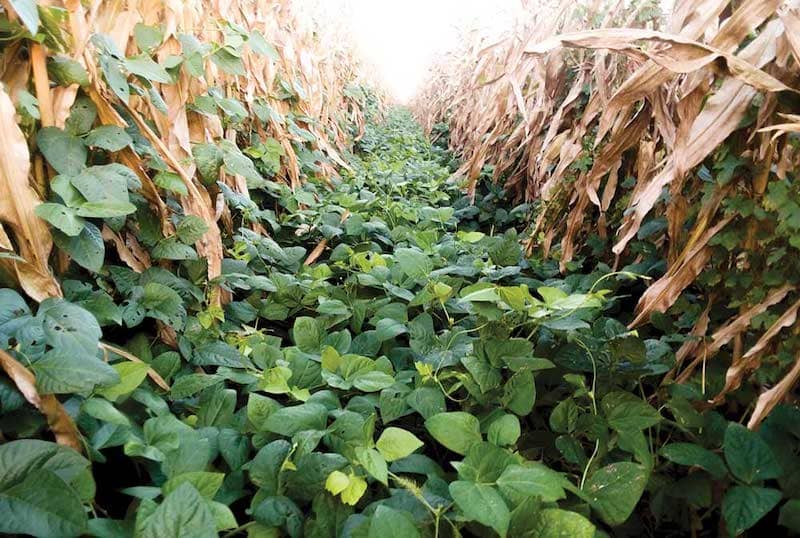Cover Crops: The Unsung Heroes of Sustainable Farming
It is with great interest that we analyze the thought-provoking issue concerning Cover Crops: The Unsung Heroes of Sustainable Farming. We will share essential insights and deliver fresh interpretations.
Video about Cover Crops: The Unsung Heroes of Sustainable Farming
Cover Crops: The Unsung Heroes of Sustainable Farming

In the ever-evolving landscape of agriculture, sustainability is no longer a buzzword but a necessity. Farmers worldwide grapple with soil degradation, nutrient depletion, and the ever-present challenge of maintaining profitability while minimizing environmental impact. Enter cover crops, often overlooked yet brimming with potential, these unsung heroes offer a powerful tool in the sustainable farming arsenal.
What are Cover Crops?
Cover crops are non-cash crops planted intentionally to protect and improve soil health. They are specifically chosen for their ability to enhance soil fertility, suppress weeds, control erosion, and boost biodiversity. Unlike cash crops, which are grown for harvest and sale, cover crops are typically incorporated into the soil before planting the main crop or terminated at certain growth stages.
A Powerful Multi-Tool for Soil Health
Cover crops act as a multi-faceted solution to numerous soil challenges:
Boosting Soil Fertility: Legumes, a prominent group of cover crops, possess the remarkable ability to fix atmospheric nitrogen into the soil, supplying vital nutrients for succeeding cash crops. Others, like brassicas, release nutrients into the soil as they decompose, forming a natural fertilizer. They also enhance soil organic matter content, improving its structure, water retention capacity, and nutrient-holding ability.
Suppressing Weeds: Dense cover crops create a physical barrier that chokes out weeds, reducing the need for costly and potentially harmful herbicides. Some cover crops, like hairy vetch, release allelopathic compounds that inhibit weed growth.
Preventing Erosion: Cover crops act as a protective blanket against the erosive forces of wind and rain. Their extensive root systems bind the soil, preventing runoff and minimizing topsoil loss. This is particularly beneficial on slopes and fragile lands, safeguarding their long-term productivity.
Improving Water Infiltration: The dense root networks of cover crops enhance soil porosity, allowing water to penetrate deeper and replenish groundwater reserves. This improves water retention, reducing the risk of drought stress for cash crops and promoting efficient irrigation.
Increasing Biodiversity: Cover crops provide habitat and food sources for beneficial insects, pollinators, and soil organisms, fostering a healthy and diverse ecosystem. This natural biodiversity contributes to a more resilient and self-sustaining agricultural system.
Integrating Cover Crops into Sustainable Farming Practices
The benefits of cover crops extend beyond single fields. They seamlessly integrate into a range of sustainable farming practices, contributing to a holistic approach:
- Crop Rotation: Cover crops are essential components of crop rotation plans, breaking pest and disease cycles, replenishing soil nutrients, and mitigating the negative effects of monocultures. Legumes, in particular, play a crucial role in nitrogen fixation, reducing the reliance on synthetic nitrogen fertilizers.
- No-Till Farming: Cover crops are indispensable for successful no-till farming systems. They protect the soil from erosion during the fallow period between cash crops, preventing the loss of valuable topsoil and organic matter. The living root system also improves soil structure, making it easier for the following cash crop to establish.
- Reduced Chemical Inputs: By suppressing weeds and improving soil health, cover crops significantly reduce the need for synthetic herbicides, pesticides, and fertilizers. This minimizes environmental pollution, protects beneficial organisms, and reduces production costs for farmers.
- Climate Change Mitigation: Cover crops contribute to climate change mitigation by sequestering carbon in the soil. The increased organic matter content enhances carbon storage, mitigating greenhouse gas emissions and promoting climate resilience.
Closure
We hope this article has provided a thorough understanding of Cover Crops: The Unsung Heroes of Sustainable Farming. We appreciate your attention to this article. Stay tuned for more articles!.

No comments:
Post a Comment